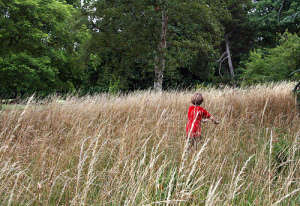When the weather is nice, we spend more time outdoors with the children. Playing in the back yard, at the playground or walking on nature trails are great ways to get fresh air and exercise.
What are ticks? – Ticks are small mites that attach themselves to skin and suck blood. Click HERE to see examples of ticks.
Where are ticks commonly found? – Ticks are normally found in areas with trees, bushes or tall grass. This includes back yards, parks, nature areas and most places you would be spending time with the children outdoors in the nice weather.
What needs to be done? – When you return home from areas where ticks might live, carefully check the children (their skin and scalp) for ticks.
Most ticks do not carry diseases, and most tick bites do not cause serious health problems. But it is important to remove a tick as soon as you find it. Removing the tick completely may help you avoid diseases such as Lyme Disease that the tick may pass on during feeding, or a skin infection where it bit you.
Click HERE for Instructions on Removing a tick from WebMD.com.
Photo: Misko – Flickr

 Dehydration means that the body lacks the necessary amount of fluid. Infants and small children are more likely to become dehydrated than older children or adults, because they can lose relatively more fluid quickly.
Dehydration means that the body lacks the necessary amount of fluid. Infants and small children are more likely to become dehydrated than older children or adults, because they can lose relatively more fluid quickly.